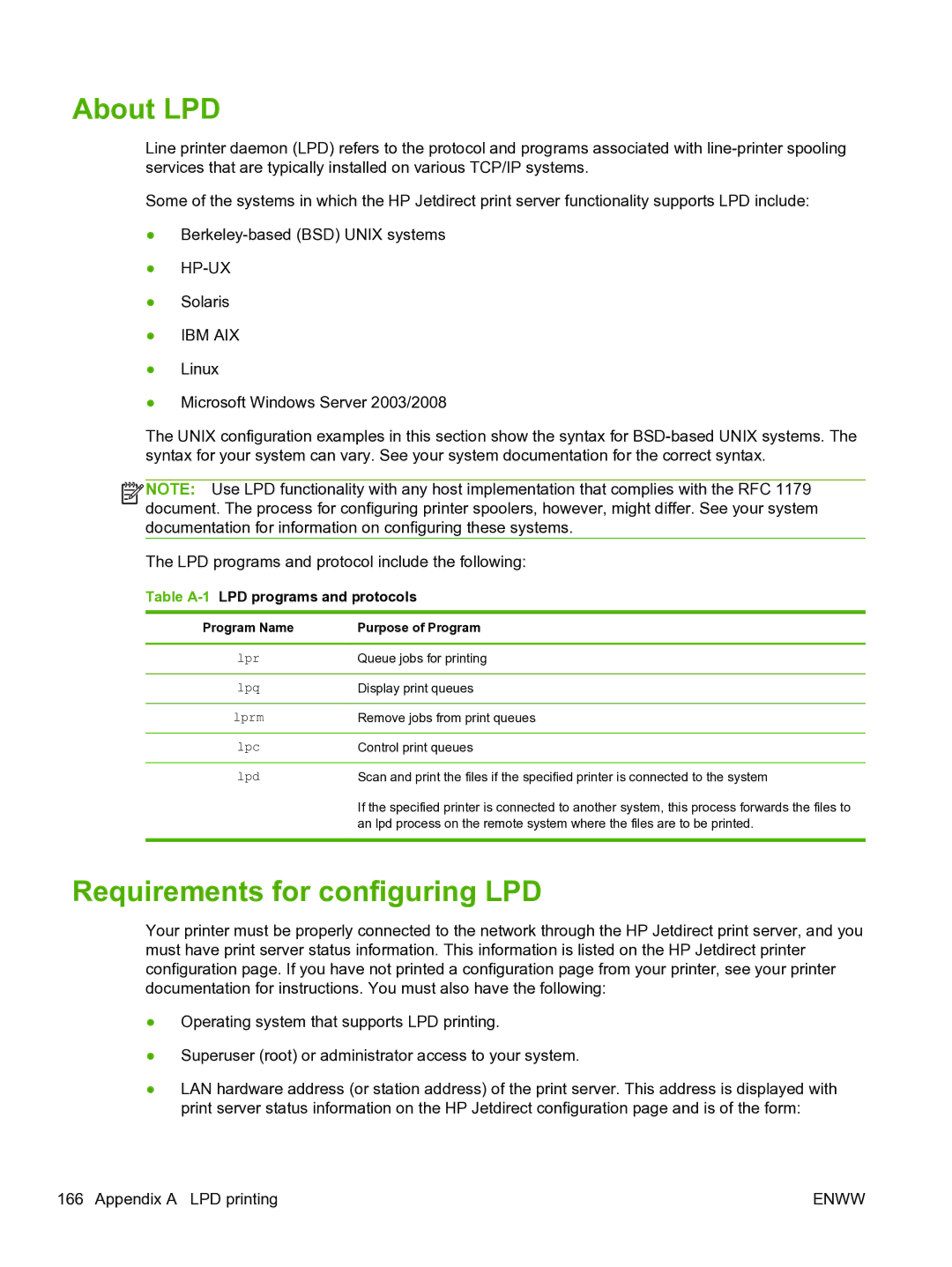
About LPD
Line printer daemon (LPD) refers to the protocol and programs associated with
Some of the systems in which the HP Jetdirect print server functionality supports LPD include:
●
●
●Solaris
●IBM AIX
●Linux
●Microsoft Windows Server 2003/2008
The UNIX configuration examples in this section show the syntax for
![]()
![]()
![]()
![]() NOTE: Use LPD functionality with any host implementation that complies with the RFC 1179 document. The process for configuring printer spoolers, however, might differ. See your system documentation for information on configuring these systems.
NOTE: Use LPD functionality with any host implementation that complies with the RFC 1179 document. The process for configuring printer spoolers, however, might differ. See your system documentation for information on configuring these systems.
The LPD programs and protocol include the following:
Table A-1 LPD programs and protocols
Program Name | Purpose of Program |
|
|
lpr | Queue jobs for printing |
|
|
lpq | Display print queues |
|
|
lprm | Remove jobs from print queues |
|
|
lpc | Control print queues |
|
|
lpd | Scan and print the files if the specified printer is connected to the system |
| If the specified printer is connected to another system, this process forwards the files to |
| an lpd process on the remote system where the files are to be printed. |
|
|
Requirements for configuring LPD
Your printer must be properly connected to the network through the HP Jetdirect print server, and you must have print server status information. This information is listed on the HP Jetdirect printer configuration page. If you have not printed a configuration page from your printer, see your printer documentation for instructions. You must also have the following:
●Operating system that supports LPD printing.
●Superuser (root) or administrator access to your system.
●LAN hardware address (or station address) of the print server. This address is displayed with print server status information on the HP Jetdirect configuration page and is of the form:
166 Appendix A LPD printing | ENWW |
